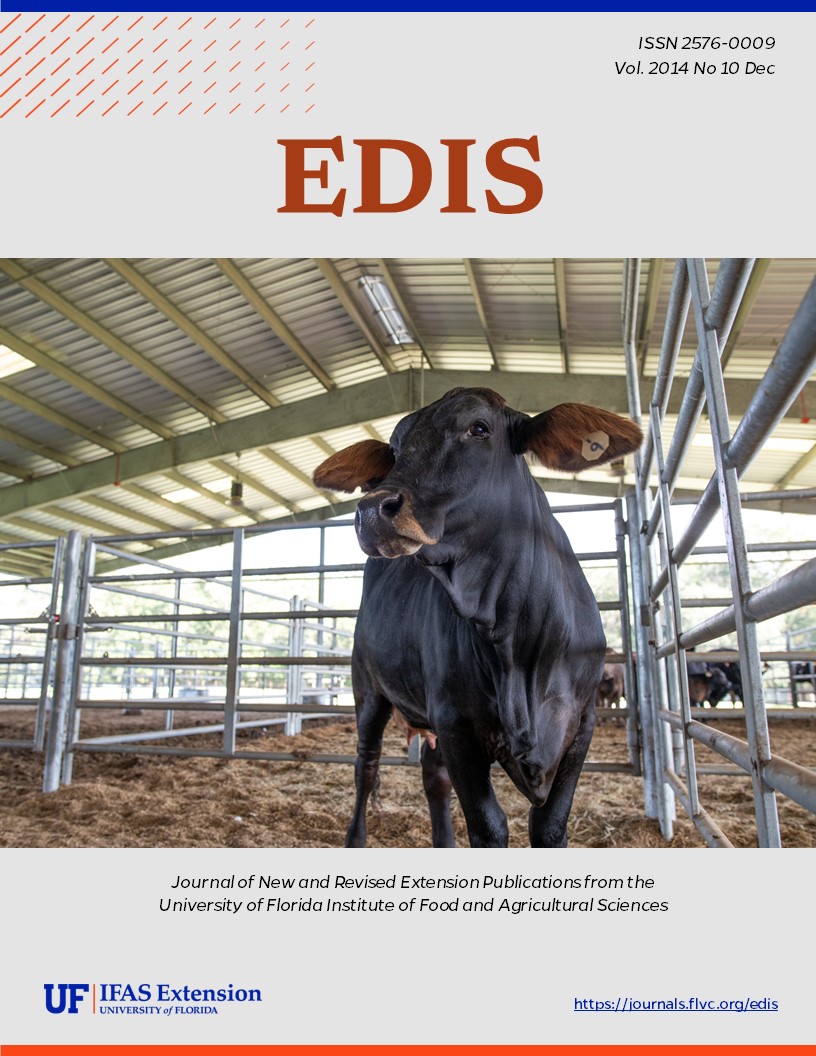Resumen
If picked at the proper mature-green stage and handled properly, tomatoes will ripen to excellent edible quality. Proper postharvest handling of Florida tomatoes is critical to ensure the continued competitiveness of Florida growers.This publication focuses on round and roma (plum) tomatoes since these types are handled similarly under commercial conditions. Originally published August 1989. Revised November 2005, by Steven A. Sargent, Jeffrey K. Brecht, and Teresa Olczyk. This update December 2014 with Qingren Wang.
Citas
Bartz, J. A., S. A. Sargent, and M. J. Mahovic. 2013. “Identifying and Controlling Postharvest Tomato Diseases in Florida.” HS866. Gainesville, FL: University of Florida Institute of Food and Agricultural Sciences. http://edis.ifas. ufl.edu/HS131.
Cantliffe, D. J. and J. J. Vansickle. 2012. “Competitiveness of the Spanish and Dutch Greenhouse Industries with the Florida Fresh Vegetable Industry.” HS918. Gainesville, FL: University of Florida Institute of Food and Agricultural Sciences. http://edis.ifas.ufl.edu/cv284.
Florida Department of Agriculture and Consumer Services. 2012. “Tomato Best Practices Manual, A Guide to Tomato Good Agricultural Practices (T-GAP) & Tomato Best Management Practices (T-BMP).” FDACS-P-01580. http://www.freshfromflorida.com/Divisions-Offices/ Fruit-and-Vegetables/Tomatoes.
Florida Tomato Committee. 2014. Handling Regulations. Maitland, FL. http://www.floridatomatoes.org/regulations/domestic-markets/.
Freeman, J. H., E. J. McAvoy, N. S. Boyd, M. Ozores- Hampton, H. A. Smith, and G. E. Vallad, G.E. 2014. Tomato Production. Vegetable & Small Fruit Production Handbook of Florida 2014–2015. Chapter 12, Gainesville, FL: Univer¬sity of Florida Institute of Food and Agricultural Sciences. http://edis.ifas.ufl.edu/pdffiles/CV/CV13700.pdf.
Olson, S. M. 2012. “Physiological, Nutritional, and Other Disorders of Tomato Fruit.” HS-954. Gainesville, FL: University of Florida Institute of Food and Agricultural Sciences. http://edis.ifas.ufl.edu/HS200.
Ritenour, M. A., S. A. Sargent, and J. A. Bartz. 2014. “Chlorine Use in Produce Packing Lines.” HS761. Gainesville, FL: University of Florida Institute of Food and Agricultural Sciences. http://edis.ifas.ufl.edu/CH160.
Sargent, S. A., J. K. Brecht, M. T. Talbot, and J. J. Zoellner. 1991. “Performance of Packing Line Sizers for Fresh Market Tomatoes as Affected by Size Standards.” Applied Engineer¬ing in Agriculture. 7(6):724–728. https://doi.org/10.13031/2013.26293
USDA. 1991. “United States Standards for Grades of Fresh Tomatoes.” Washington, DC. http://www.ams.usda.gov/ AMSv1.0/getfile?dDocName=STELPRDC5050331.
———. 2012. Census of Agriculture. Vol. 1, Chap. 1. State Level Data. Florida. http://www. agcensus.usda.gov/Publications/2012/Full_Report/ Volume_1,_Chapter_1_State_Level/Florida/.
———. 2014. “Tomatoes, red, ripe, raw, year round aver¬age.” National Nutrient Database for Standard Reference. Release 27. Basic Report 11529, http://ndb.nal.usda.gov/ ndb/foods/show/3258.

